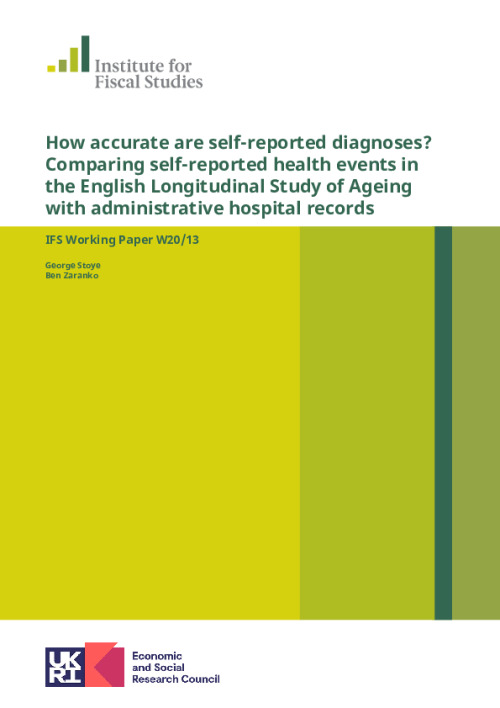This paper uses linked survey responses and administrative hospital records to examine the accuracy of self-reported medical diagnoses. The English Longitudinal Study of Ageing (ELSA) collects self-reported information on the incidence of heart attacks, strokes and cancer in the past two years. We compare these reports with administrative hospital records to examine whether respondents are recorded as having an inpatient admission with these diagnoses during this period. We find self-reported medical diagnoses are subject to considerable response error. More than half of respondents diagnosed in hospital with a condition in the previous two years fail to report the condition when surveyed. Furthermore, one half of those who self-report a cancer or heart attack diagnosis, and two-thirds of those who self-report a stroke diagnosis, have no corresponding hospital record. A major driver of this reporting error appears to be misunderstanding or being unaware of their diagnoses, with false negative reporting rates falling significantly for heart attacks and strokes when using only primary hospital diagnoses to define objective diagnoses. Reporting error is more common among men, older respondents and those with lower cognitive function. Estimates relying on these self-reported variables are therefore potentially subject to sizeable attenuation biases. Our findings illustrate the importance of routine linkage between survey and administrative data.











